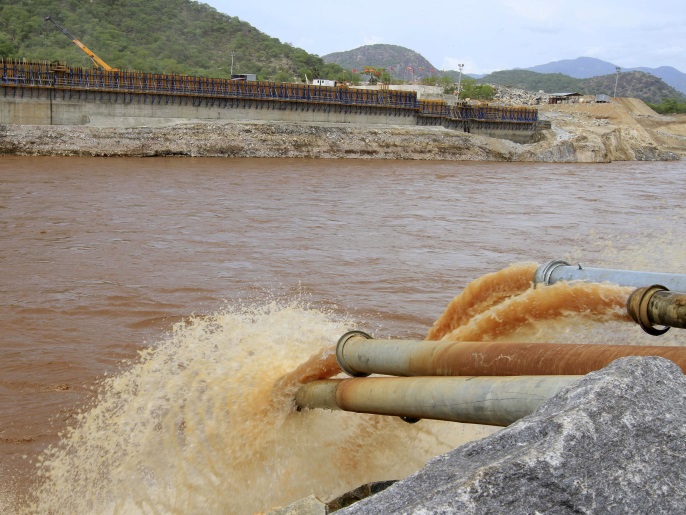Cairo suggested resorting to alternative options before Monday's meeting in the Renaissance Dam negotiations between Egypt, Ethiopia and Sudan on outstanding issues regarding the mobilization and operation of the dam, and after Egypt and Ethiopia exchanged accusations against each other.
Egyptian Foreign Minister Sameh Shoukry said that his country may have to make alternative options, in light of the continuation of what he described as the Ethiopian intransigence in the negotiations.
In statements he made during a symposium on the challenges facing Egyptian diplomacy, organized by the Egyptian Business Council in cooperation with the Ministry of Foreign Affairs, Shukry said that Ethiopia's latest negotiating position does not herald positive results.
block
Shoukry pointed out that Cairo may have to consider options such as resorting to the UN Security Council in order to fulfill its responsibilities in redressing the impact on international peace and security, by preventing Ethiopia from taking unilateral action that negatively affects Egypt's water rights.
He reaffirmed his country's commitment to the negotiating approach over the past years, and demonstrated its sincere intentions towards reaching a fair and just agreement for this crisis, in the interests of the three countries.
On Saturday, tripartite meetings between Cairo, Khartoum and Addis Ababa closed through the technology of the video conference, without reaching results on the stalled negotiations months ago.
No results
The Egyptian Ministry of Water Resources and Irrigation said in a previous statement that the meetings were not positive and did not reach results.
Addis Ababa had accused Cairo of stubbornness and blamed it for any stumbling in the negotiations in the coming days, saying that it did not aim to harm Egypt's interests, and that the aim of building the dam was to generate electricity mainly.
Ethiopia plans to start filling the dam in this year's rainy season, which coincides with next July.
Draft
On Monday, negotiations are expected to discuss a new draft document prepared by Sudan based on the comments of the three countries, in addition to evaluating the negotiating track.
The Sudanese Ministry of Irrigation indicated that the Saturday meeting witnessed a heated debate on the legal aspects of the agreement that the three countries are working to reach.
The Saturday meeting focused, according to the Ministry, on the technical aspects of packing and operating the Renaissance Dam in the conditions of normal rainy seasons, one dry season and long successive dry seasons, as well as permanent operating methods. The ministry said that the discussion seeks to reach an agreement on the amount of water that will be discharged from Lake Al-Nahda Dam.
On May 6, Egypt submitted a letter to the UN Security Council to discuss developments of the dam. And at the end of last February, Egypt signed, in initials, the agreement to fill and operate the dam under the auspices of Washington and the participation of the World Bank.
Cairo considered this agreement fair, amid Ethiopian rejection, a Sudanese reservation, and an Egyptian declaration in mid-March of last that talks with Ethiopia would be suspended.
Cairo fears the potential negative impact of the dam on its annual flow of 55.5 billion cubic meters of Nile water, while Sudan gets 18.5 billion.

